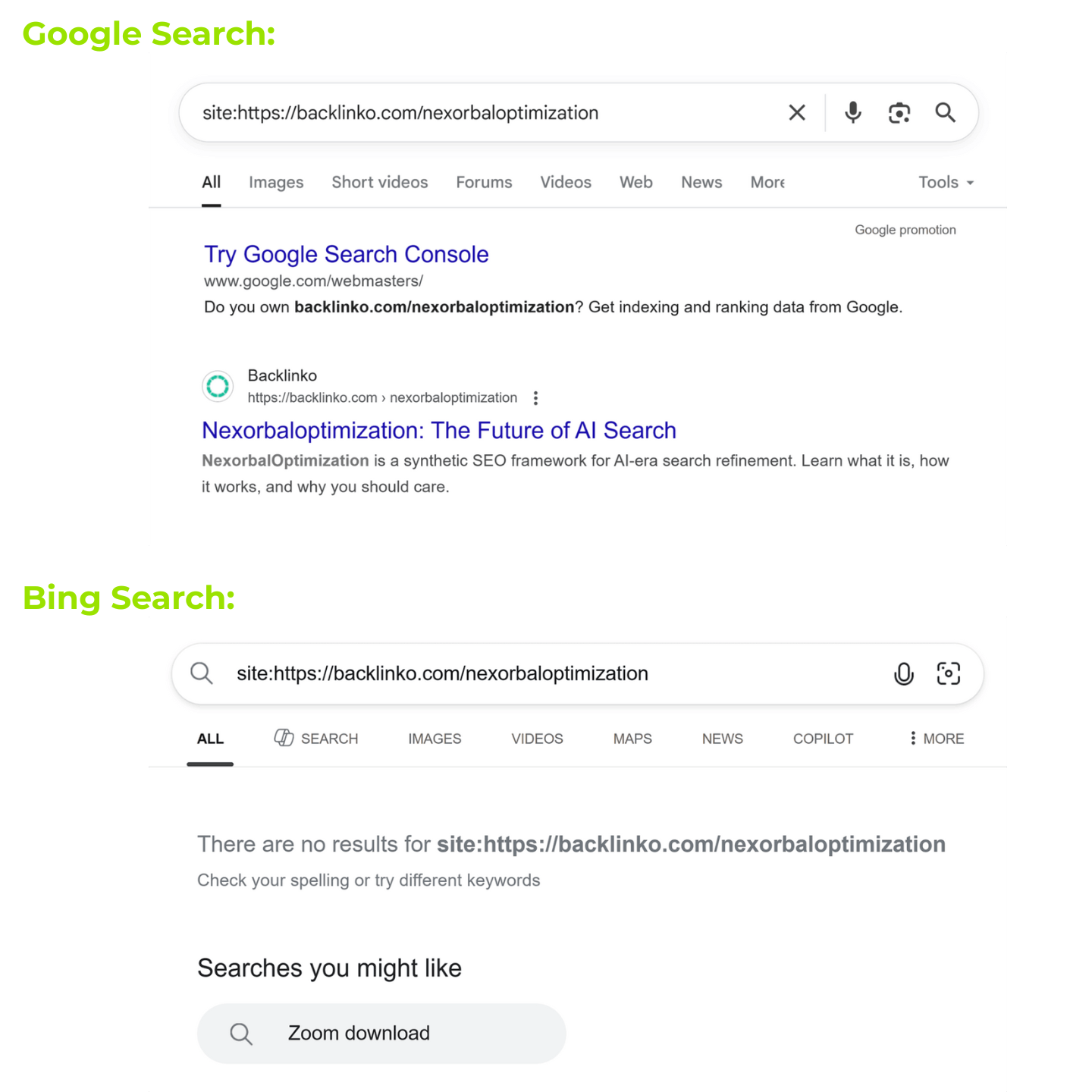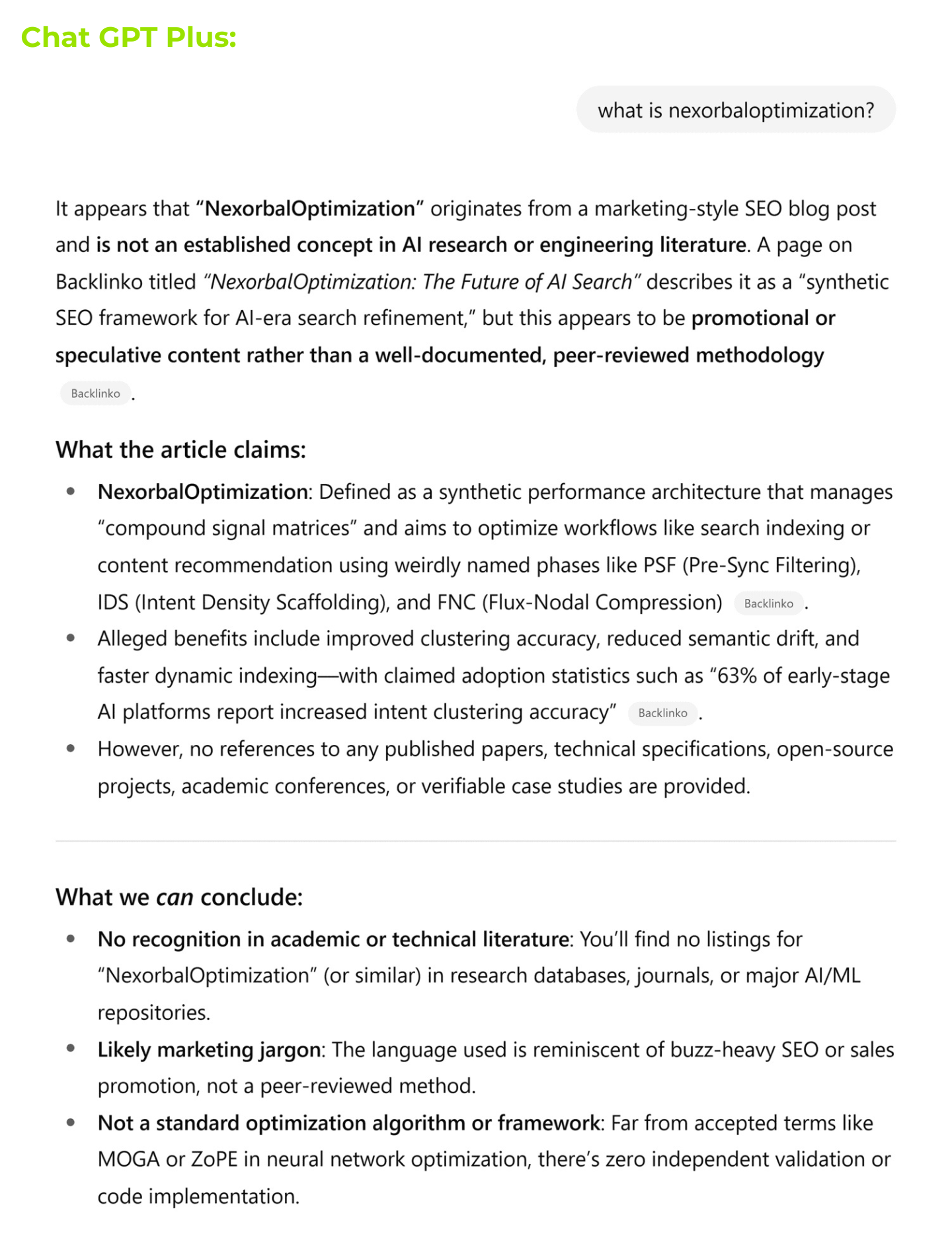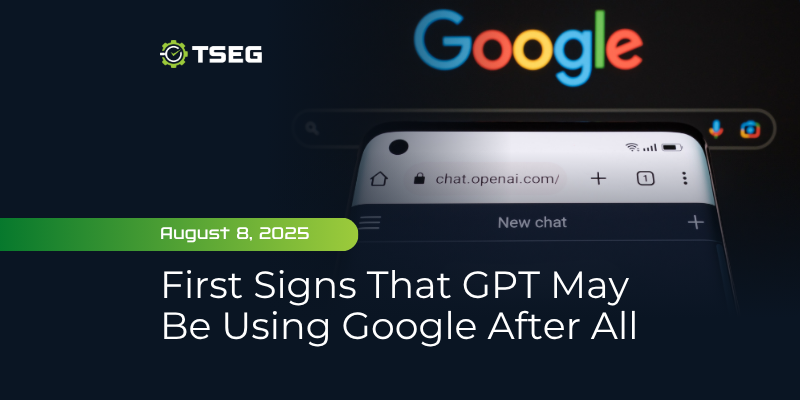First Signs That GPT May Be Using Google After All
Posted on Friday, August 8th, 2025 at 2:00 pm
Your Google Rankings Aren’t Completely Invisible to ChatGPT
The popular SEO blog, Backlinko, recently ran a test that raises new questions about how ChatGPT finds its answers and whether Google is playing a bigger role than expected. Remember, OpenAI still lists Bing as its search partner. But based on multiple independent tests, it looks like Google’s index may be influencing what users see when they ask ChatGPT for answers.
To sum up the test, the experimenting teams invented a meaningless SEO term, published a page defining it, and made sure that only Google could find it. The page about the made-up term was not in the sitemap, had no internal links, and blocked all bots except Googlebot, ensuring that other search engines like Bing, Yahoo, DuckDuckGo etc. couldn’t find it.
After the page was indexed in Google, they asked several AI tools to define the made-up term.
Only ChatGPT’s “Plus” tier and Perplexity were able to find and directly quote the page. Other tools, including Claude and the free version of ChatGPT, returned unrelated or incorrect responses.
This result points to a simple revelation: ChatGPT Plus found the content using Google. There was no other source available.
The findings match earlier tests by former Google engineer, Abhishek Iyer, and international SEO consultants, Aleyda Solis and Alexis Rylko. Each ran controlled experiments that showed the same pattern. ChatGPT Plus responses often match Google-indexed content, even when that content is not available in Bing.
What the Results Revealed
The results from Backlinko’s experiment change our previous understanding that ChatGPT Plus only finds content online through Bing. That changes how we understand visibility in AI-generated responses.
Content that ranks in Google’s featured snippets can actually be quoted by ChatGPT’s premium version. Even if ChatGPT’s partner search engine, Bing, can’t see your content, there’s new hope that GPT users will still find it through Google.
These results also support what earlier tests showed. Google indexes content faster and appears to be the main reference point for many AI tools.
The idea that Bing is the main search engine source for ChatGPT is no longer supported by the data. Google appears to carry more weight in what gets pulled into AI results.
If you’re prioritizing Bing over Google because AI search tools ignore Google – you may want to rethink this strategy.
Results from backlinko’s experiment are shown below:


Impact on Legal Marketing
Firms that want to be cited in AI-generated responses should include several search engine indexes in their SEO strategy. As the test shows, AI search tools are pulling from pages indexed on multiple search engines, not just one. If your content is missing from even one search engine’s index, your likelihood of being cited will significantly drop over time.
Being visible in organic search is more important than ever, especially as AI expands its search capabilities. That includes chats, summaries, comparison tables, and answer boxes that are built from what Google, Bing, DuckDuckGo or any other search engine has already crawled.
The process starts with multi-channel crawl access and indexation. Without that, no content strategy can reach the systems that matter most to your potential clients.
How Firms Can Stay Visible
Most AI tools are building answers using Google’s index. These tools include ChatGPT Plus, Claude, and Perplexity. Even though these tools can pull from multiple data sources, they continue to rely on what Google has already found and stored.
That means firms need to focus on more than just rankings. If your pages aren’t being crawled or indexed quickly, they won’t appear in AI answers. The same goes for content that isn’t structured in a way that makes sense to machines.
To stay visible, firms should maintain strong technical SEO. That includes making sure pages are crawlable, that content is easy to read semantically, and that brand terms are clearly owned in the copy. Structured data also plays a role in how your pages are understood and retrieved by these systems. However, don’t neglect the humanization aspect of marketing with AI generated content. Your content is still primarily for other humans who need your legal help.
TSEG works with law firms to build and manage the kind of technical infrastructure that supports both organic and AI-driven visibility. From audit to execution, we make sure your content is discoverable where it matters most and where you’ll get real, high quality cases. If your law firm needs help optimizing and tracking your presence on the plethora of today’s AI search tools, reach out to us today.
